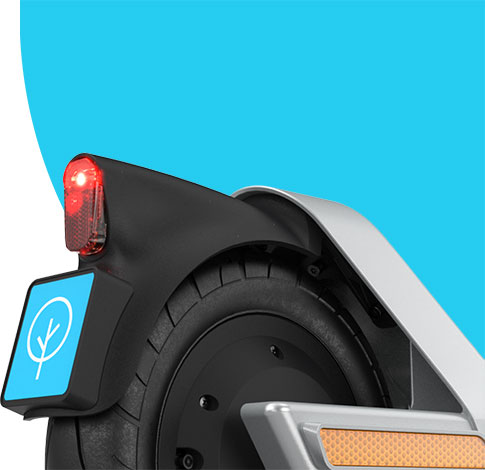When Bird launched the world’s first fleet of shareable electric scooters in 2017, our goals were simple: reduce traffic, improve air quality and increase transportation equity for the millions of people moving back into urban centers every year—those for whom nearly half of all vehicle travel is made up of trips under 3 miles/5kms in length.
In this unexpected new world, however, where social distancing dominates the public discourse and residents wonder when they’ll be able to safely congregate on trains and in coffee shops once again, the conversation around the future of micromobility has taken on new significance.
So let’s start with what we know: e-scooters and bikes have an important role to play in the transportation grids of tomorrow.
Beyond their well-documented popularity that encourages riders to switch from cars to more sustainable modes of transit, they possess a versatility that can easily be adapted to a complex and unpredictable world—whether that means supplementing public transit during a temporary shutdown or facilitating essential trips during a global pandemic. This has been demonstrated before, and it holds true today.
“There is broad consensus today that, when implemented thoughtfully, micromobility acts as a boon to cities globally. As the health benefits of social distancing become clearer, it’s imperative that we develop transportation alternatives that help residents move safely around their communities without relying on gas-powered cars. Smart and connected electric scooters and bikes have become a definitive part of that solution, and it’s time that we plan our cities accordingly.”
– Aarti Tandon, Co-Founder and CEO, Smart City Expo Atlanta
It’s now more important than ever for cities, agencies and service providers to develop strong, cooperative partnerships that build upon these early successes.
With smart regulations, micromobility systems can be organized without compromising ease and efficiency. We see this in cities like Paris and Los Angeles, where local governments are working with operators to build protected infrastructure that encourages scooter use while also developing in-app technology that enforces proper riding and parking practices. It’s important that policies are not too restrictive, as modeshift away from cars depends heavily on riders’ ability to use shared electric vehicles when and where they need them.
“Micromobility has become a trusted, efficient, and sustainable transportation alternative to cars. It’s critical that cities work with operators in a manner that recognizes, supports, and encourages the economic and environmental benefits this new mobility service provides. Further integrating electric scooters and bikes into our communities while expanding equitable access can be done with reasonable policies that are safe, community-friendly, and don’t stifle an exciting new business.”
– Jeff Allen, Executive Director, Forth
The global pandemic may pose a challenge to micromobility in the short term, but the steps that must be taken to ensure its long term success and adoption are clear: invest in infrastructure and implement smart regulations that make the most of organized bike and scooter systems.
For some cities, this involves creating protected “bike and scooter transit lines” that follow popular metro routes and help ease the strain on public transportation. For others, it means using electric scooters and bikes to fill in transportation gaps unique to specific neighborhoods and communities. By doing this, we can create a global mobility network that clears our cities of cars and congestion, as well as one that successfully adapts to rider behavior and demand in a rapidly changing world.
This is the promise of the future of micromobility. It’s now up to us to bring that future to life.

Rebecca Hahn is the Chief Corporate Social Responsibility Officer at Bird.
Her role puts her at the confluence of community engagement and storytelling, leading the company’s global city engagement, government partnerships, policy, communications, marketing and brand teams.

